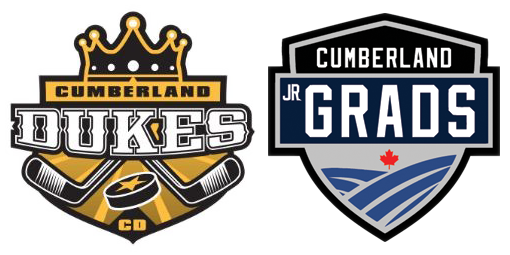Risk & Safety
Are you coaching this year?
View the Coach Cheat Sheet developed by the CMHA Risk, Safety, Harassment & Abuse (RSHA) team
On this page
Courses and Forms
-
- Medical Information Sheet
- Emergency Action Plan
- Safety in Numbers: Rule of Two
- Hockey Canada Safety Downloads and Resources
- Rowan's Law
- Hockey Trainers Ontario: Hockey Trainers Ontario
- Trainer check lists: Hockey Trainers Ontario - Check Lists
- Warmups, Stretching and Safety Videos: Hockey Trainers Ontario - Videos
- Reporting Injuries | Hockey Eastern Ontario
Digital & Off-Ice Safety
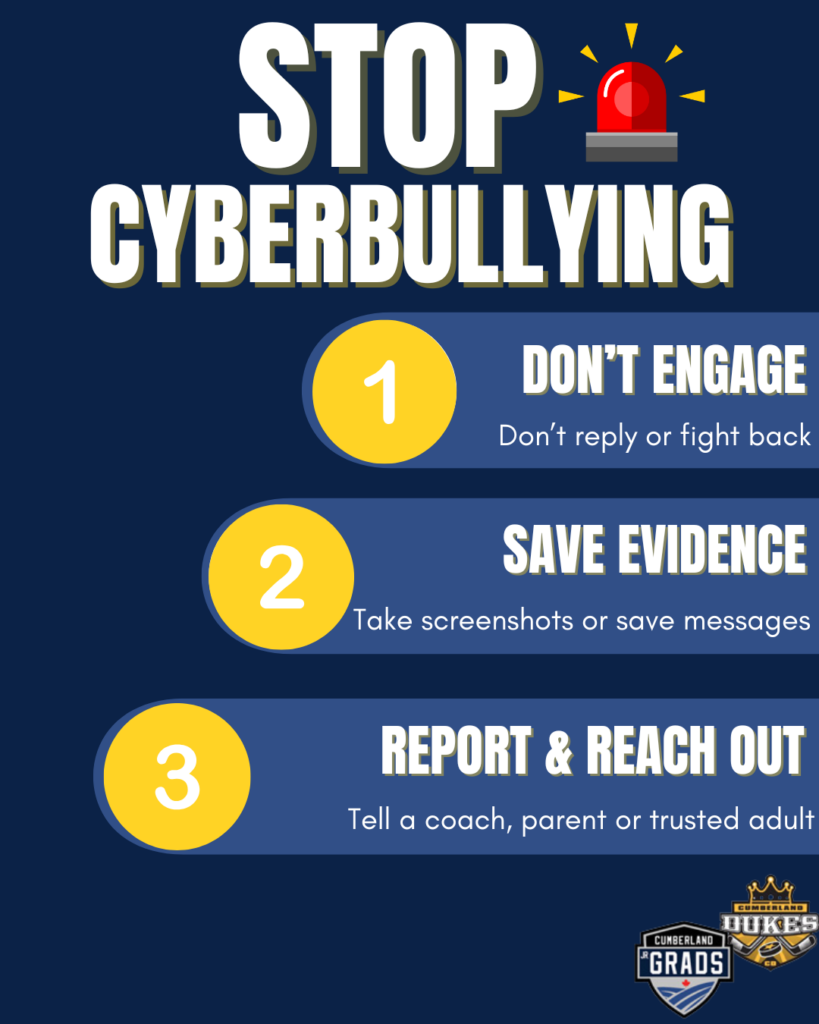
Cyberbullying is when someone uses phones, social media, or online platforms to hurt, embarrass, or intimidate others. It’s not just “jokes” — it can cause real harm. Here’s what every player should know: Don’t engage. Responding can make the situation worse. Save evidence. Take screenshots and keep records of what happened. Report & reach out. Talk to a coach, parent, team official, or another trusted adult. You are not alone. 📌 If you see a teammate being targeted, stand up for them and show support. A small action can make a big difference.
Parents are the biggest supporters of our players, and photos are a wonderful way to celebrate their hockey journey. But before hitting “post,” it’s important to think about privacy and safety. What feels like a small detail online can have bigger consequences for players, families, and our association. Best Practices for Posting Hockey Photos: ✅ Celebrate the fun — focus on team spirit, friendships, and action shots. ✅ Share through official CMHA channels like TeamSnap when possible. ✅ Create a private team group if posting more photos such as Facebook, WhatsApp or Google Photos. ✅ Always ask before posting photos of other children. ✅ Ensure background details (like license plates, school logos, or home addresses) are not visible. Things to Avoid: ❌ Sharing personal information. ❌ Tagging children or players without consent. ❌ Posting anything that may embarrass or exclude another player. Why this matters: By keeping these practices in mind, we ensure our players’ safety, protect their online presence, and respect the privacy of all CMHA families. Action: Download and share our Do’s & Don’ts of Posting Hockey Photos image this week — and let’s commit to posting responsibly this season
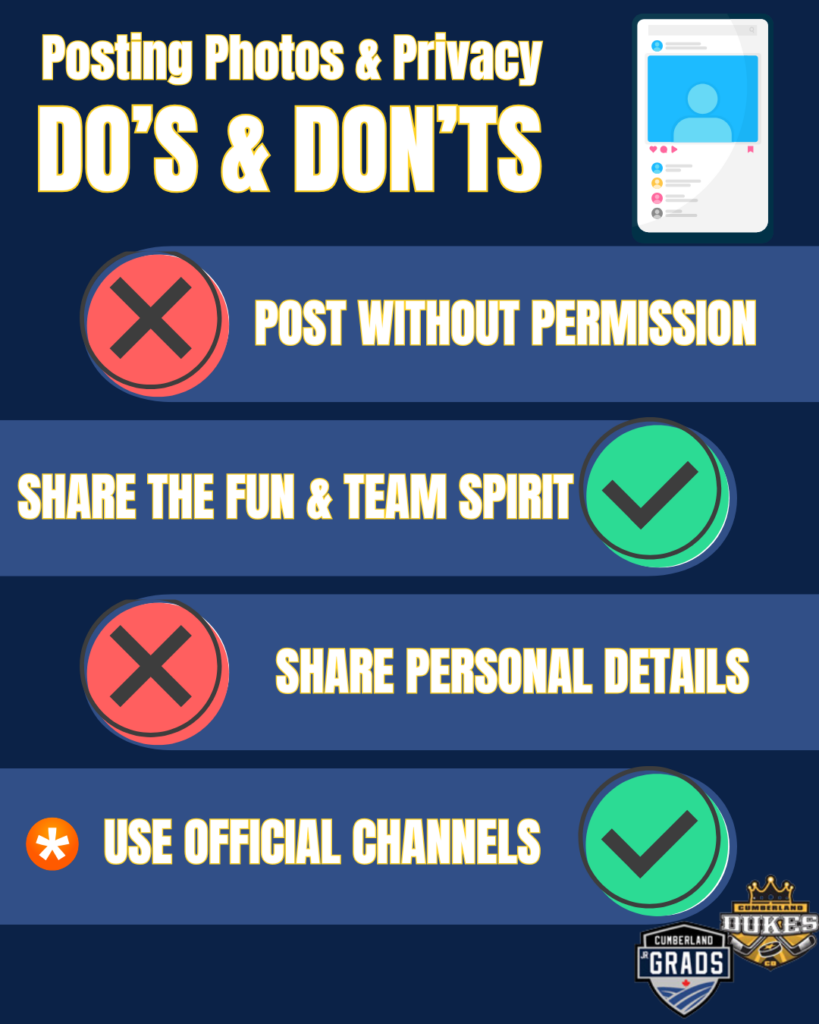
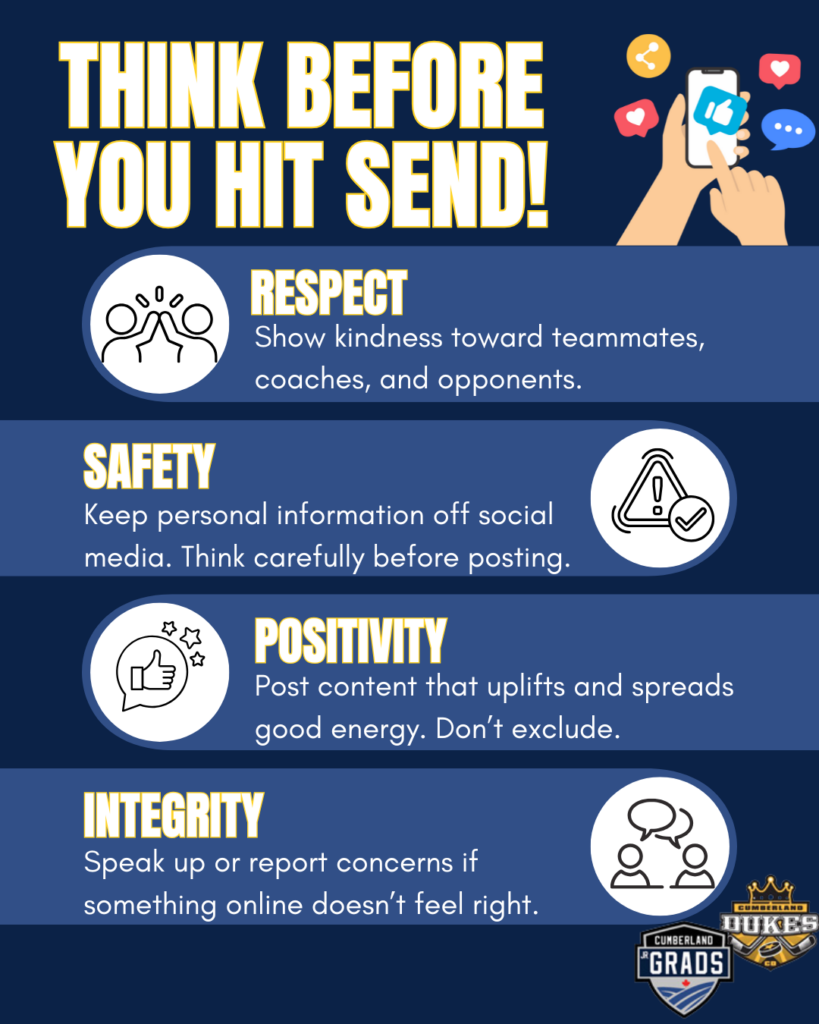
As we begin the season, Cumberland Minor Hockey Association is committed to supporting our players, parents, and coaches both on and off the ice. Our Speaker Series and Safe Sport program for September focuses on Digital Safety & Social Media Conduct. This week’s theme: Group Chat Rules. From U7 to U21, group chats are a common way to connect. They help teammates stay organized, share updates, and build community. But with that comes responsibility. Everyone in the CMHA community — players, parents, and coaches — has a role to play in making sure these spaces are safe and respectful. Guidelines for group chats: Think before you send. Messages, images, or jokes can be screenshotted and shared beyond your group. Keep it respectful and positive. No bullying, exclusion, or hurtful comments. Protect privacy. Avoid posting rosters, photos, addresses, or personal details. Set boundaries. Coaches and players should use official communication tools, not personal accounts. Lead by example. Parents and older players model the digital behaviour we want the younger players to follow. Speak up. Report concerns if something online doesn’t feel right. Why it matters: Digital behaviour directly impacts team trust, well-being, and safety. By setting a standard early in the season, we help all players thrive in a positive environment — online and on the ice. More information about HEO’s social media policy can be found: here. Action: Share our “Think Before You Send” infographic with your team and use it as a reminder throughout the season. Together, let’s make CMHA’s digital spaces safe, respectful, and positive for everyone.
HEO Policy Reminder
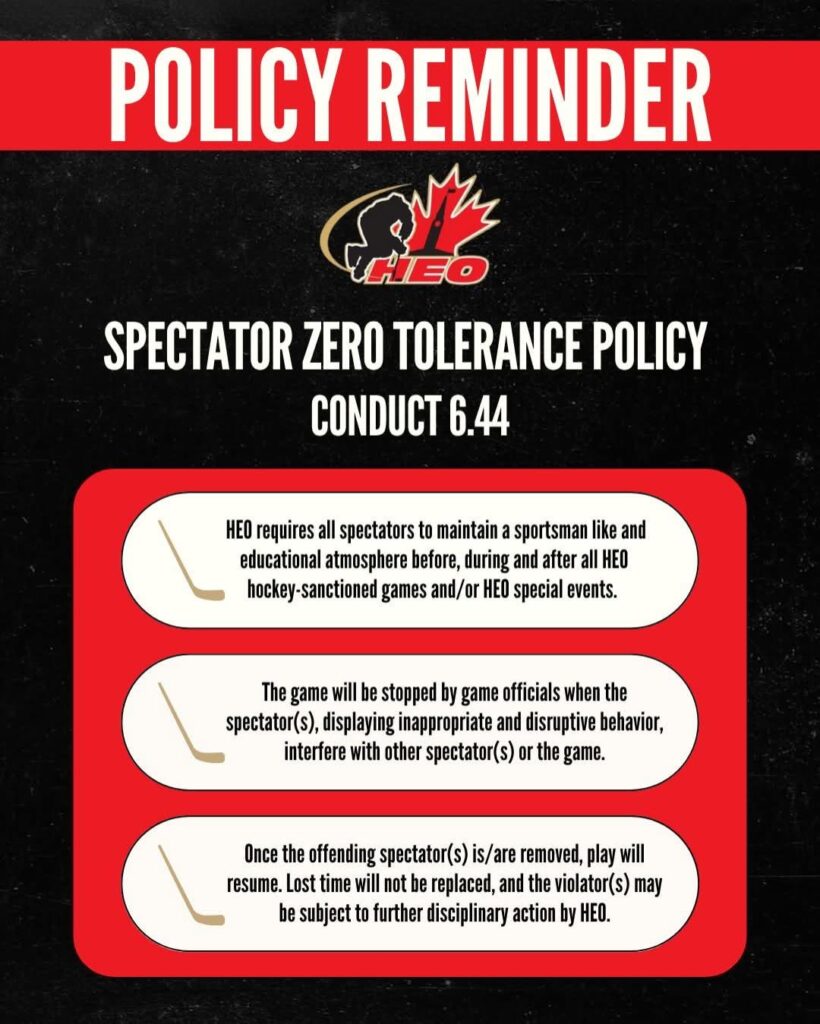
Player Safety & Injury Prevention
Concussion Safety: Prevention Starts Before the Puck Drops
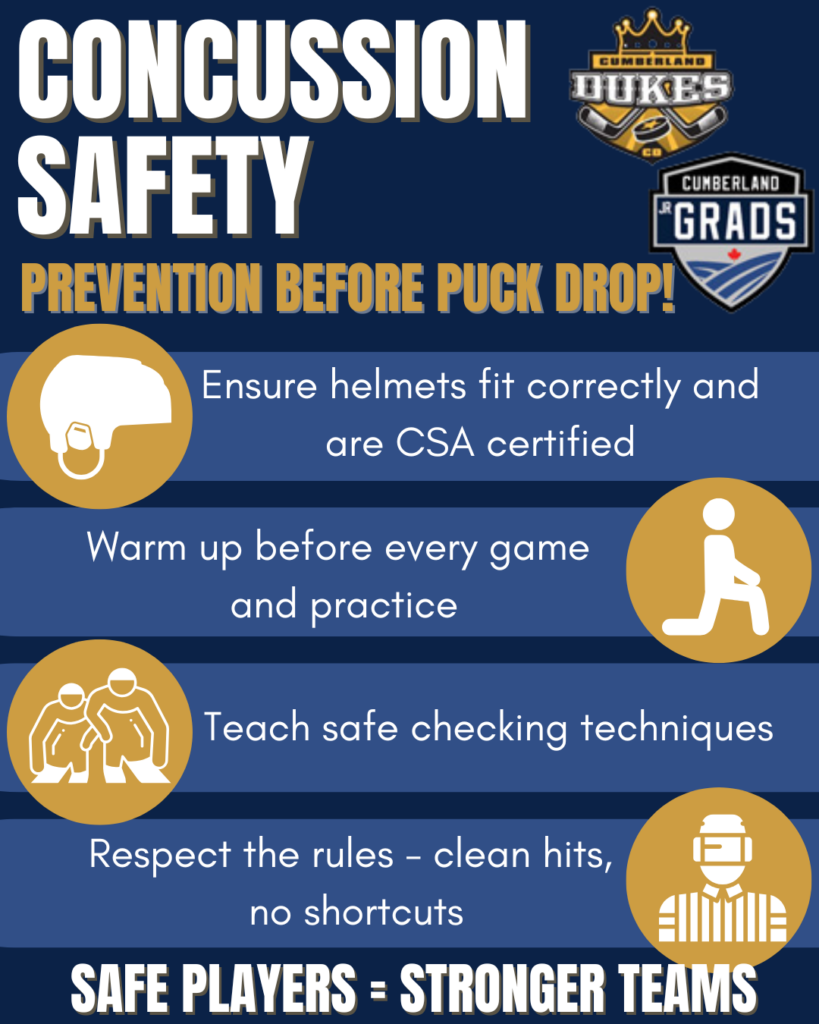
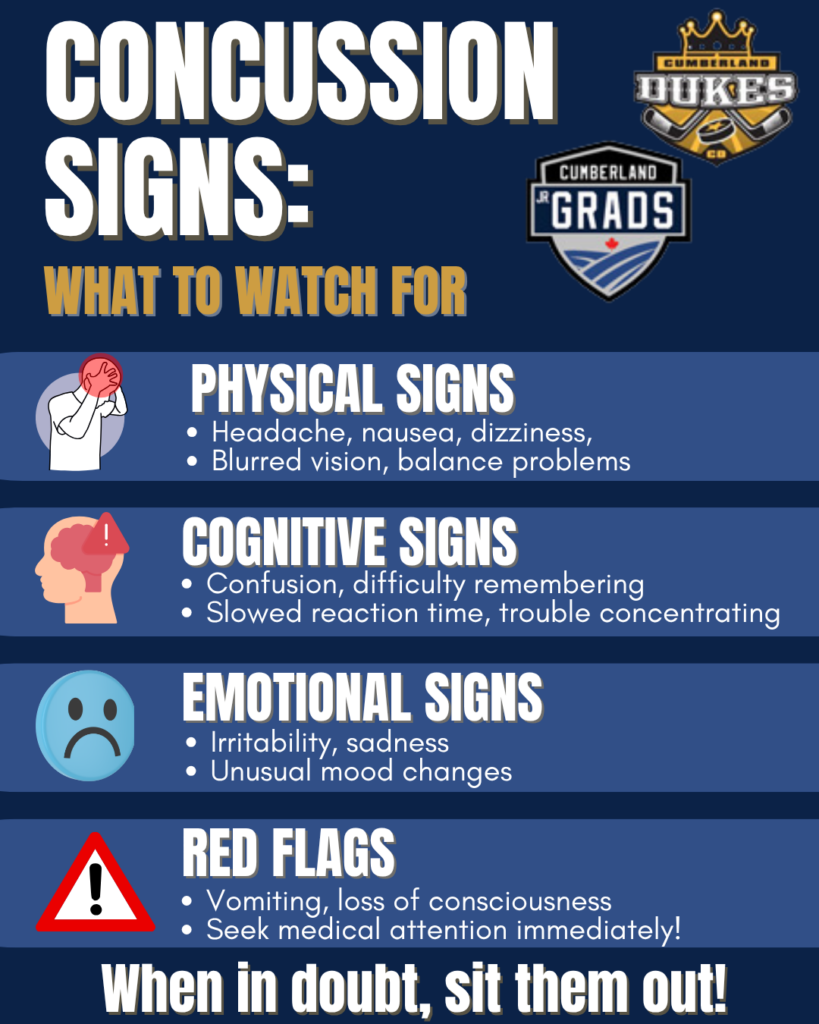
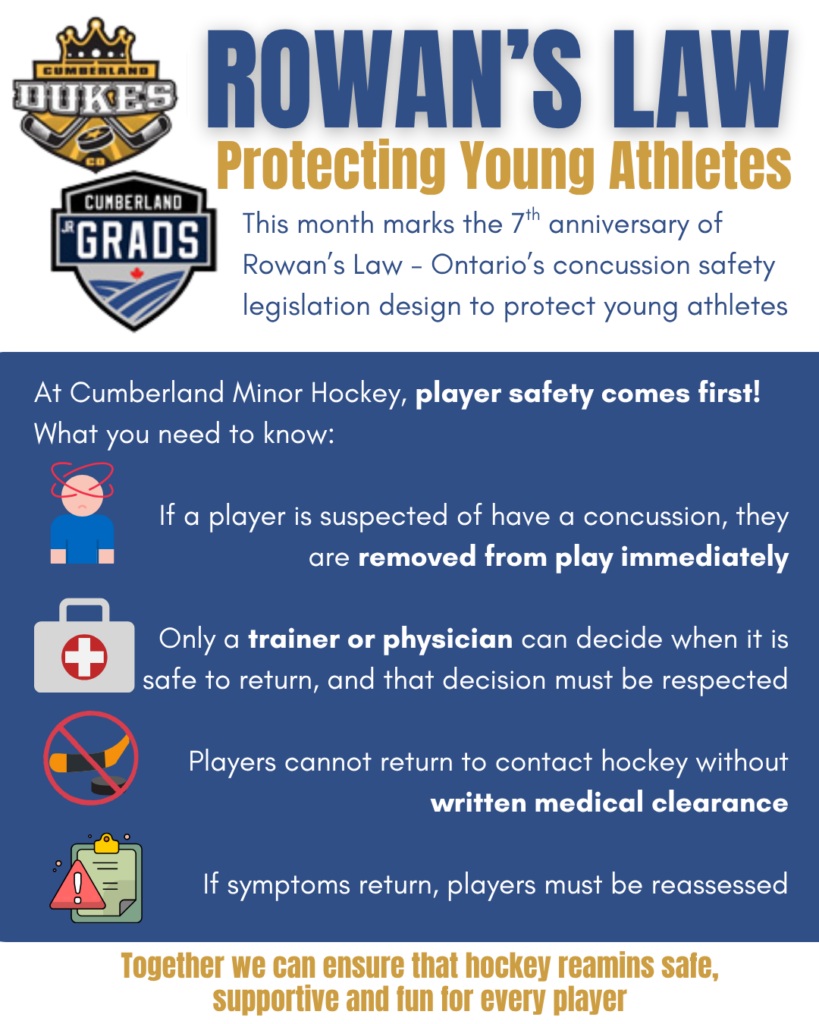
7 Years of Safer, Smarter Hockey This month marks the 7th anniversary of Rowan’s Law — Ontario’s concussion safety legislation designed to protect young athletes. At Cumberland Minor Hockey, player safety isn’t just a rule — it’s a responsibility we all share. Concussions are serious injuries, and every player, parent, and coach plays a vital role in prevention and recovery. ⚠️ Spotting Concussions in Hockey A concussion is a brain injury caused by a blow to the head or body that shakes the brain. It can happen in a game, during practice, or even off the ice. Recognizing the signs early is the first step to keeping players safe. Common Symptoms Physical: Headache, nausea, dizziness, blurred vision, balance issues Cognitive: Confusion, trouble concentrating, memory lapses, slowed reaction time Emotional: Irritability, sadness, nervousness, mood swings 🧠 What You Need to Know If a player is suspected of having a concussion, they must be removed from play immediately. No same-day return: A player can only return when cleared by a qualified trainer or physician. Medical clearance is mandatory before returning to contact hockey. If symptoms return, the player must stop activity and be reassessed. When in doubt, sit them out. Protecting our athletes today ensures their future in the game. 🧾 For Coaches & Trainers Trust your instincts — if something feels “off,” treat it as a concussion. Document every suspected incident in your team’s injury log. Communicate promptly with parents/guardians and your division convenor. Reinforce the message that safety takes priority over competition. 🩵 Together, We Make Hockey Safer By following Rowan’s Law and CMHA’s concussion protocols, we create an environment where every player can learn, compete, and grow safely. Let’s keep hockey safe, supportive, and fun for everyone.
Harassment, Abuse & Discrimination
Coming soon
Mental Health & Balance
Coming soon
Governance & Risk Management
Coming soon
Season Wrap-Up & Safe Sport Legacy
Coming soon
